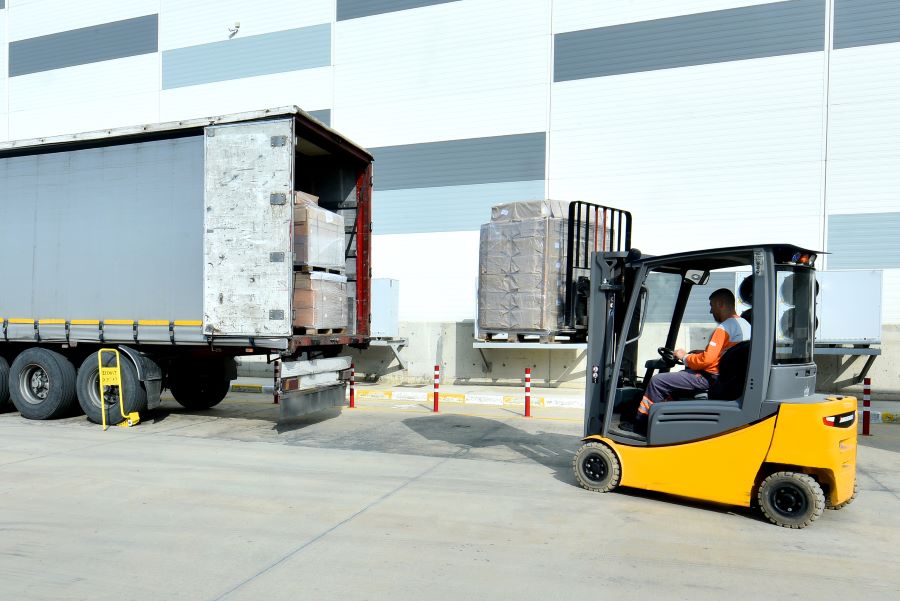Logistics
Industries
Technology & Innovations
E-commerce
E-commerce Fulfillment Services
Lease & Maintenance
Semi Trucks
Logistics
E-commerce
Lease & Maintenance
Buy Used Trucks

Updated 12/8/23
Cross docking has emerged as a strategic game-changer for supply chains. This agile and efficient process has garnered substantial attention due to the escalating challenges faced by supply chains worldwide. Rising customer expectations for faster deliveries, the complexity of managing large inventories, fluctuating consumer demands, and the need for streamlined operations amidst global disruptions have spurred a significant shift towards adopting cross docking methodologies.
As supply chains seek to navigate these hurdles and optimize their operations, the adoption of cross docking has become a pivotal strategy driving enhanced efficiency and responsiveness within the supply network.
In this article, we’ll uncover the different types of cross docking, its benefits, and how you can implement a cross docking solution into your supply chain.
What is Cross Docking?
Cross docking is a shipping solution that divides warehouses into inbound and outbound sections. On the inbound side, raw materials arrive from suppliers and manufacturers; during the outbound segment, finished products go out to customers. The warehouse doesn’t typically house inventory for more than 24 hours. This process reduces the time and staff needed to move merchandise along the supply chain.
Here are more details about cross docking and its advantages.
A growing industry
Companies worldwide rely on cross docking to meet their shipping needs. The numbers bear this out: this market is a fast-growing sector, with a projected compound annual growth rate (CAGR) of nearly 6% between 2020 and 2030. It generated $200 billion in revenue in 2020 and is expected to create $342 billion in revenue by 2030.
Three ways companies use cross docking are:
All of these forms of cross docking provide an efficient way to consolidate your incoming and outgoing materials. They allow you to cut costs on labor and shipping, increase load size, eliminate the need for warehouse storage, and reduce the number of trucks that need to be on the road.
Let’s dig a little deeper into these benefits: lower costs, speed to market, and enhanced customer experience.
Lower cost
Cross docking can lower the four largest cost drivers in shipping:
This benefit comes from fixed asset cost savings due to the reduced need for warehouse square footage.
Speed to market
This is arguably the greatest advantage of cross docking. As your throughput ramps up, products arrive to consumers faster. This is attributed to less time needed to manage materials. Although some projects take up to 48 hours to turn around, most are completed within 24 hours.
A typical example is a shipment of products sold and allocated to a retailer before they arrive at the warehouse. It’s in everyone’s best interest for these items to get to their designated stores as efficiently as possible. Cross docking ensures that this happens in the shortest possible amount of time.
Another perk to this process is that products spend minimal time sitting in warehouses; storage capacity is at its lowest point in history.
Enhanced customer experience
Next-day and same-day shipping are now expected. Efficient deliveries benefit all kinds of industries, from big-box retailers to auto-parts dealers. It also helps smaller businesses get their products to market as fast as their national-chain counterparts. Plus, they can pass savings on to customers.
But it’s not only about speed. Cross docking also allows companies to efficiently assemble the right combination of items for the right customer, with store-ready orders already in place. This is preferable over the traditional supply-chain shipping system, which involves breaking apart pallets and hunting for one item at a time.
Cross Docking and Nearshoring
For companies nearshoring their supply chain operations, embracing cross docking presents a several advantages. One of the key benefits lies in the reduction of inventory holding costs and associated risks. By swiftly transferring goods from suppliers to distribution centers or directly to customers without the need for storage, companies can minimize inventory levels, freeing up valuable capital and warehouse space.
Moreover, cross docks strategically placed near cross border activities, leads to quicker order fulfillment, enabling businesses to respond promptly to shifting consumer demands and market fluctuations. This streamlined approach not only cuts down on handling and storage expenses but also optimizes transportation efficiency, reducing lead times and overall logistics costs.
Additionally, as companies nearshore their operations, cross docking fosters greater agility and flexibility in the supply chain, allowing for nimble adjustments to regional variations in demand and supply, ultimately enhancing overall competitiveness.
Your cross docking partner
Ryder’s cross dock network lets you easily manage fluctuating customer demand, move products quickly to market, lower costs, and increase inventory turnover. We distribute your goods with little to no storage time, allowing you to meet the demands of your customers and improve your bottom line.